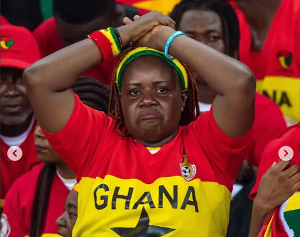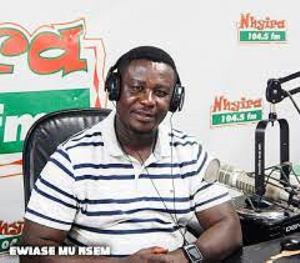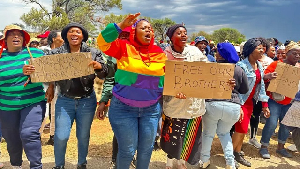Koforidua, May 20, GNA - Political parties in Ghana have been asked to improve their structures and procedures and remove barriers that discriminate against the participation of women in politics. Mrs Ernestina Naadu Hagan of Women Law and Development, who made the call, noted that despite the positive attributes and acknowledgments of women, who constituted more than half of the country's population, a few of them take part in decision-making and take positions in politics and public life. "This sad situation, which is observed worldwide, is more pronounced in the developing countries, including Ghana where equitable and sustainable development had been stunted because women were marginalized in the decision-making process and gender consideration not given much importance in development matters", she emphasized
Mrs Hagan made the observations at a two-day workshop in Koforidua on Friday for political leadership and other stakeholders on increasing women participation and representation in governance and decision-making. She said a critical analysis of the structures of political parties in Ghana revealed that some parties created women wings, to make them appear gender sensitize. Mrs Hagan asked political parties to use the women wings as conduits to promote gender and women issues. She criticized the two major political parties, the New Patriotic Party (NPP) and the National Democratic Congress (NDC) for having the opportunity to form government but the status quo in women representation in politics and executive key positions had remained almost the same.
Mrs Hagan said the challenges women encountered in politics were many and valid, including entrenched socio-cultural beliefs and practices that relegated them to the background and prevented them from assuming leadership roles. She also mentioned illiteracy and low level of education, high expectation from constituents and negative portrayal of women in politics by the media. Mrs Hagan suggested that political parties should encourage women to contest for parliamentary seats and to improve internal party measures to increase women's participation at all levels of the party.
The Minister of Women and Children Affairs, Mrs Juliana Azumah-Mensah, said the workshop aimed at engaging political party leadership and Members of Parliament (MPS), in dialogue on best practices to increase women interest in politics. It was also to review the 1998 Affirmative Action Policy guidelines and solicit inputs for the drafting of the Affirmative Action Bill. Participants included MPS, leaders of the various political parties and civil society organizations.
Regional News of Friday, 20 May 2011
Source: GNA
















